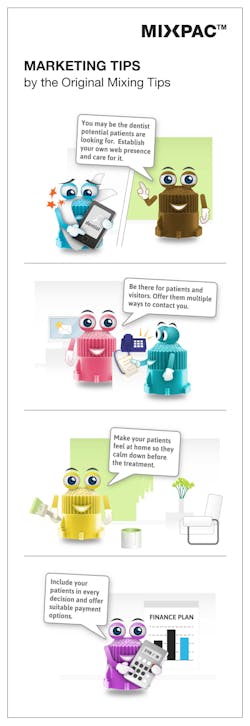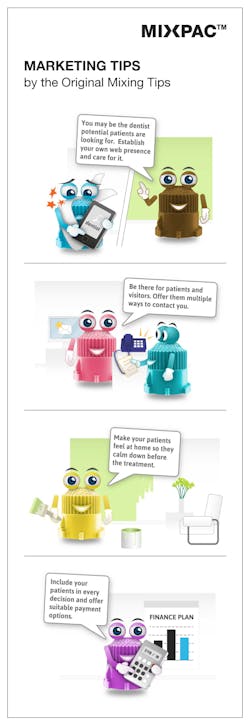Make a positive impression on dental patients with an excellent phone presence
In many practices, the front office staff often contact patients two to three days beforehand to confirm their appointments. This helps the entire team prepare better for scheduled treatments. During this phone conversation, there is a danger that patients may feel pressured or even postpone or cancel their appointment. Therefore, this reminder call requires a great deal of sensitivity, especially in the case of rather unpleasant procedures such as implants or a root canal.
Instead of calling patients simply to confirm an appointment, a communication that prioritizes the patient’s healthis more appropriate. Before the appointment, staff should call patients and give them the opportunity to talk about their current dental health and any potential problems they may be having. This communication gives anxious patients the chance to ask questions about the procedure they’ll be undergoing. If a patient doesn’t confirm the appointment during the call, the front office manager can ask for confirmation at the end of conversation, without coming across as pushy.(2)
Courtesy calls offer many benefits – dentists, hygienists, and assistants can prepare for appointments on a more individual basis, while patients will feel more secure and reassured. This courtesy makes it more likely that patients will arrive for their appointment in a relaxed frame of mind.(3)
ALSO BY ANITA MAECK AND KATHARINA SCHMIDT:What patients expect from their dentist: The overall impression needs to be right
Anita Maeck, left, and Katharina Schmidt are editors at “dieleutefuerkommunikation,” a communication agency in Sindelfingen, Germany. They write for Sulzer Mixpac Ltd., a leading manufacturer and supplier of cartridge-based metering, mixing, and dispensing systems and disposable mixers for reactive multi-component materials. Find more information about Sulzer on sulzer.com/microsites/tips-for-dentists. If you have questions, email Katharina Schmidt at [email protected] or Anita Maeck at [email protected].
1. DZW: “Professional phone services in dental practices” (in German). http://www.dzw.de/artikel/professionelles-telefonieren-der-zahnarztpraxis-1. 25 February 2013. Last access: 26 June 2014.
2. Facebook: Pride Institute – Dental Practice Management. Sharyn Weiss: “Confirmation versus Courtesy Calls”. Posted: 25 February 2014. Last access: 26 March 2014.
3. Ebd.



